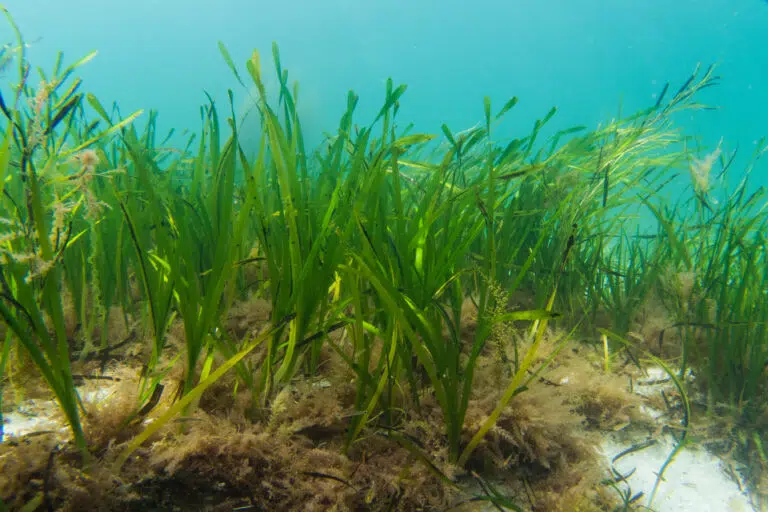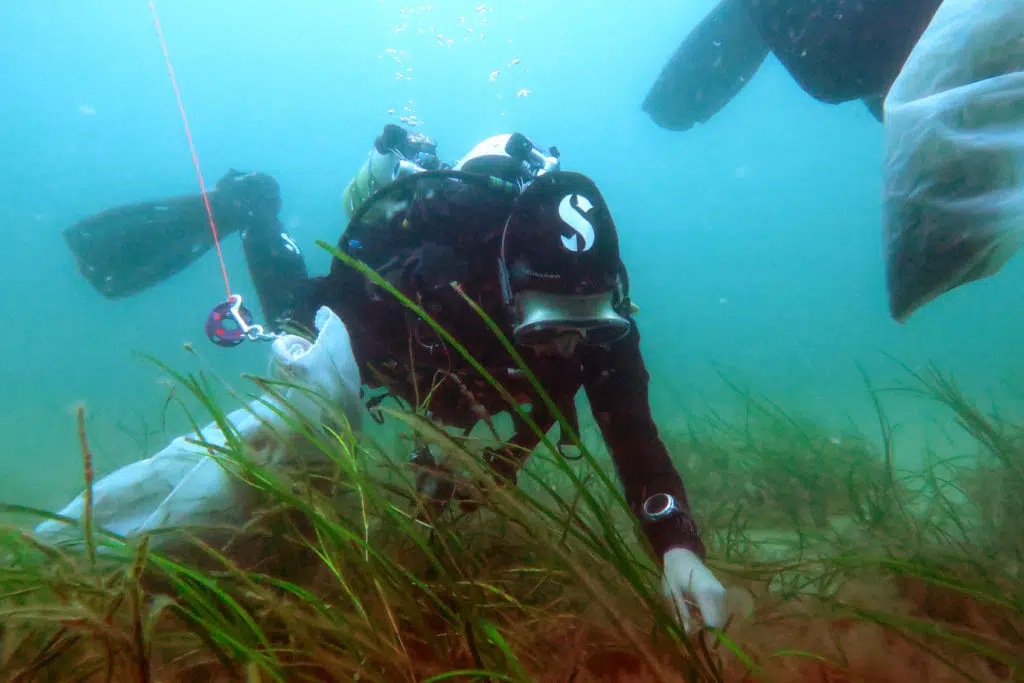

Seabed restoration project update: summer seagrass planting in Plymouth Sound
Work on England’s largest seagrass restoration effort continues in Plymouth Sound National Marine Park as part of the ReMEDIES project, which Valeport is proud to sponsor.
The Ocean Conservation Trust (OCT) has deployed 100 seagrass pillows into a 2,500 square metre restoration area in Jennycliff Bay, Plymouth. Each pillow contains around 40 healthy seagrass plants with rhizomes. This new planting takes the total area of seagrass the OCT has planted in the sensitive and vitally important habitat in Jennycliff Bay, to over three hectares.
The OCT is the restoration lead in the LIFE Recreation ReMEDIES project, a £2.5 million, four-year marine conservation project to Save Our Seabed through seagrass restoration, education and innovation at five special Areas of Conservation in Southern England. We have been supporters of ReMEDIES since 2022, providing vital funding for the project and eagerly keeping an eye on its progress.
Replanting seagrass is no mean feat, the OCT hand collects seagrass seeds from healthy meadows before planting them in sand on 100% biodegradable mats (also known as pillows) made of cotton and hessian. The seeds are then nurtured in the ReMEDIES seagrass cultivation laboratory until they are established and carefully planted on the seabed by OCT’s professional dive team

The goal is healthy seagrass plants, which will then grow into meadows. While planting the latest batch of seagrass pillows, OCT divers observed a thriving seagrass meadow where they had previously planted in Jennycliff Bay. This is a real victory for us all, as seagrass is a vital tool in the fight against climate change, due to its impressive carbon-capture abilities.
Restoring our Ocean’s seagrass meadows is of vital importance for many reasons. Not only does seagrass capture carbon faster than tropical rainforests, it also reduces the effects of coastal erosion by stabilising the seabed, improving water quality by capturing organic material, sediments and nutrients, increasing biodiversity and serving as a fish nursery for many commercial fish species.
The restoration efforts don’t stop there, though. Ocean Conservation Trust’s Habitat Restoration Team will soon be back on the water to repeat the process; collecting seagrass seeds to grow in their laboratory. They are always looking for innovative ways to further their seagrass restoration efforts, experimenting with new techniques to increase the growth of the seagrass at the restoration area at Jennycliff Bay and beyond.
Congratulations to all involved in this project on the excellent progress made so far. We look forward to continuing to follow the progress of the OCT’s Habitat Restoration Team, and the LIFE Recreation ReMEDIES project over the coming months!
Do you have questions about this article?
Get in touch with Valeport Limited, and they would be happy to answer any questions you have about pricing, suitability, availability, specs, etc.







